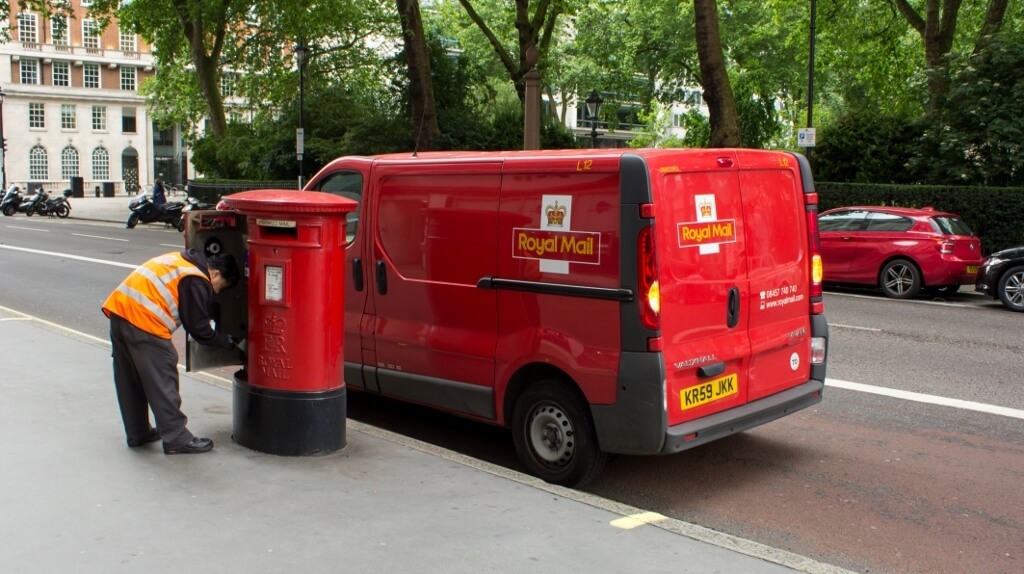The review comes in response to years of declining letter volumes, which have led to substantial financial losses for Royal Mail.
Royal Mail Could End Saturday Second Class Letter Deliveries As Part Of Cost-Cutting Reforms
The review comes in response to years of declining letter volumes, which have led to substantial financial losses for Royal Mail.

Royal Mail may soon cease Saturday deliveries for second class letters, with regulator Ofcom considering significant reforms to the postal service. As part of a review into the Universal Service Obligation (USO), which currently mandates Royal Mail to deliver letters six days a week and parcels five days a week, Ofcom is also exploring the possibility of making second class deliveries on alternate weekdays, a move that could reduce costs for the struggling postal giant.
The review comes in response to years of declining letter volumes, which have led to substantial financial losses for Royal Mail, even as parcel deliveries have surged. In the past year alone, the company posted a loss of £348 million, reflecting the growing challenges faced by the postal service in the modern age.
Lindsey Fussell, Ofcom's group director for networks and communications, told the BBC’s Today programme that reforming the universal service is essential to its sustainability. "To be clear, no change is not really an option, otherwise it is going to be unsustainable and we’re all going to have to pay a lot more for it,” Fussell said.
Alternate Delivery Days Under Consideration
One of the key reforms being considered would see second class letters delivered only on alternate weekdays, potentially reducing the delivery schedule to three days per week. For example, second class letters might be delivered on Monday, Wednesday, and Friday one week, and on Tuesday and Thursday the next. This, Royal Mail argues, would help address the financial strain caused by the significant drop in letter volumes while allowing the company to focus on its growing parcel business.
Royal Mail's parent company, International Distribution Services (IDS), has been pushing for these changes as part of broader efforts to reduce costs. IDS chief executive Martin Seidenberg stressed the urgency of the situation, stating, "The universal service faces a very real and urgent financial sustainability challenge."
Ofcom is expected to publish a consultation on the proposed changes early next year, with a final decision slated for the summer of 2025. In the meantime, Royal Mail must continue to invest in its network and improve service levels, according to Ofcom, which last year fined the company £5.6 million for failing to meet its delivery targets.
Mixed Reactions to Proposed Changes
While Royal Mail and Ofcom emphasize the necessity of reform, the proposals have sparked concern from various stakeholders, particularly small businesses and consumer groups. The UK Greeting Card Association, a significant user of Royal Mail services, expressed alarm at the potential cuts.
"Any changes to the USO must prioritize the needs of small businesses and consumers—not Royal Mail profitability," the association said in a statement, warning that the changes could undermine the affordability and reliability of postal services.
The greeting card industry, which relies heavily on second class mail, worries that reducing delivery days could hurt small businesses and diminish the personal connection that comes from sending cards. Cards are among the most frequently posted items, according to the association, and any reduction in service could impact consumers' ability to maintain this tradition.
Rising Competition and Changing Habits
The decline in letter volumes, which have halved since 2011, contrasts sharply with the growth in parcel deliveries, especially during the COVID-19 pandemic when online shopping soared. Royal Mail is also facing stiff competition from other parcel delivery companies, adding to the pressure to cut costs and modernize its services.
In recent years, Royal Mail has raised stamp prices multiple times to offset its losses, with the price of a second class stamp increasing to 85p and a first class stamp now costing £1.35. Despite these efforts, the financial challenges remain severe.
Compounding the situation is Royal Mail’s recent acquisition by Czech billionaire Daniel Kretinsky, who agreed to buy IDS for £3.57 billion earlier this year. While the new ownership could bring fresh capital and strategic direction, the pressure to cut costs and boost efficiency is unlikely to subside.
As Royal Mail navigates this difficult period, the future of second class letter deliveries may become a defining issue in the ongoing evolution of the UK's postal service. The reforms being considered by Ofcom are poised to shape how millions of Britons receive their mail—and could mark the end of an era for Saturday letter deliveries.
Thanks for signing up to Minutehack alerts.
Brilliant editorials heading your way soon.
Okay, Thanks!


